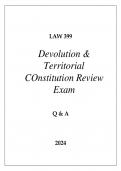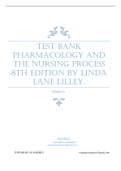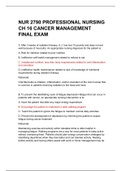Exam (elaborations)
LAW 399 DEVOLUTION & TERRITORIAL CONSTITUTION REVIEW EXAM UNE Q & A 2024
- Module
- Institution
LAW 399 DEVOLUTION & TERRITORIAL CONSTITUTION REVIEW EXAM UNE Q & A 2024LAW 399 DEVOLUTION & TERRITORIAL CONSTITUTION REVIEW EXAM UNE Q & A 2024LAW 399 DEVOLUTION & TERRITORIAL CONSTITUTION REVIEW EXAM UNE Q & A 2024
[Show more]












